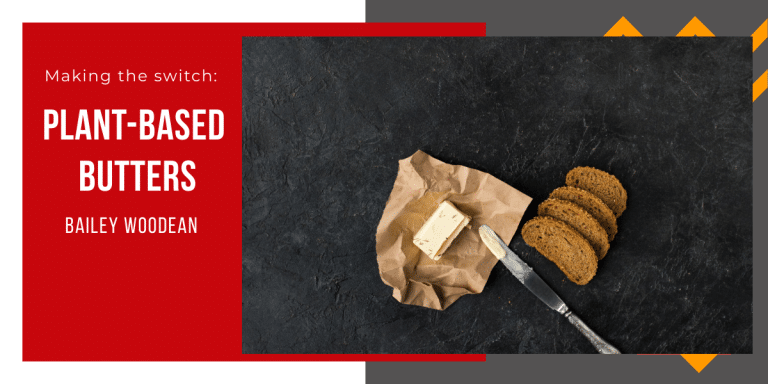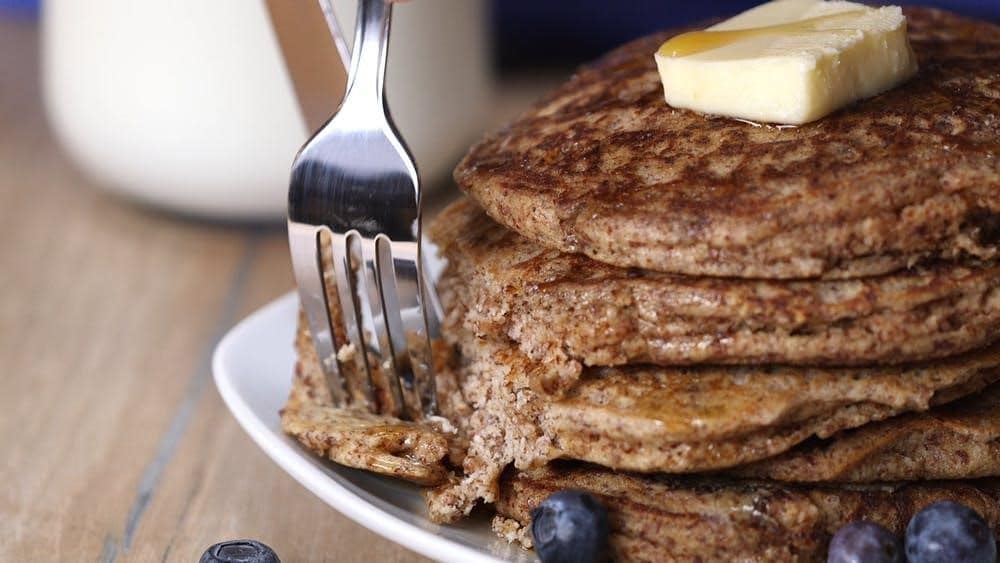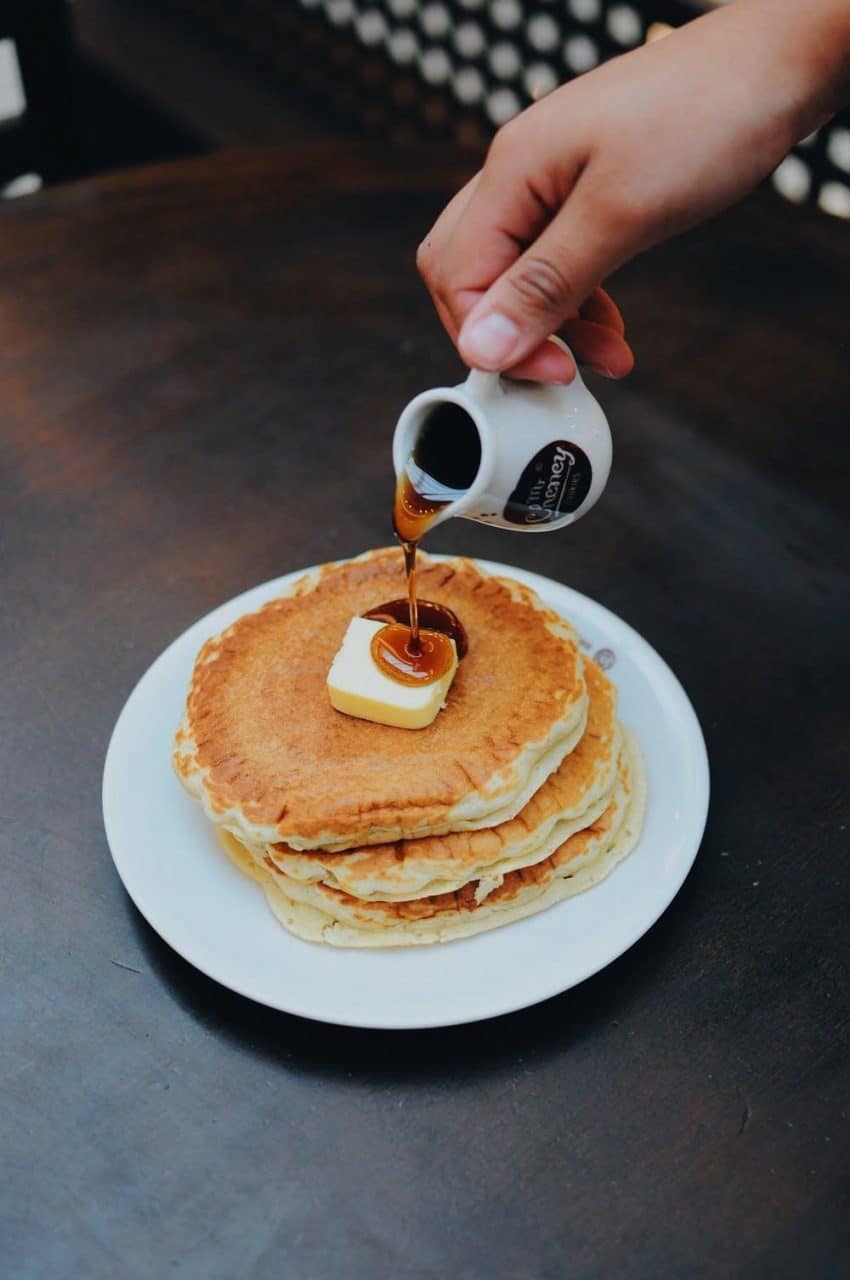
I must say that I was truly hesitant to try pant based butter after the horrendous experience with trying plant-based burgers. Nonetheless, I decided to give it a shot.
A few weeks ago I added a four-pack of Country Crock brand plant-based butter with almond oil to my grocery cart and I cannot tell you just how much I love it! It is creamy (even cold from the refrigerator), it melts and cooks into recipes really well and may even offer a better flavor compared to regular butter. So far, I have cooked eggs in it, made gravy and sauces with it, pan-fried salmon in it, and I have even added a stick to some mashed potatoes. So far, I have yet to be disappointed.

I enjoy it so much that I believe that I may be a permanent convert. But, before I get in over my head, I wanted to compare other facts about plant-based butter with almond oil and regular dairy butter.
Nutrition Facts for 1 tablespoon of regular dairy butter based on information found at https://en.wikipedia.org/wiki/Butter
- Calories 102
- Total Fat 12 g 18%
- Saturated fat 7 g 35%
- Polyunsaturated fat 0.4 g
- Monounsaturated fat 3 g
- Trans fat 0.5 g
- Cholesterol 31 mg 10%
- Sodium 2 mg 0%
- Potassium 3 mg 0%
- Total Carbohydrate 0 g 0%
- Dietary fiber 0 g 0%
- Sugar 0 g
- Protein 0.1 g 0%
- Vitamin A 7%
- Vitamin C 0%
- Calcium 0%
- Iron 0%
- Vitamin D 2%
- Vitamin B-6 0%
- Cobalamin 0%
- Magnesium 0%
*Percent Daily Values are based on a 2,000 calorie diet. Your daily values may be higher or lower depending on your calorie needs.
Butter facts
- Some people like putting butter in their coffee.
Butter coffee recipe
https://www.dietdoctor.com/recipes/bulletproof-coffee
Ingredients
- 1 cup hot coffee freshly brewed
- 2 tbsp unsalted butter
- 1 tbsp MCT oil or coconut oil
Instructions
- Combine all ingredients in a blender. Blend until smooth and frothy.
- Serve immediately
- 18th and 19th-century dairymaids would make ”fancy” butter to sell at a high cost. This fancy butter was made with unsalted butter and flowers.
- 12th century Scandinavia was the oldest European export trade of butter

Nutrition facts for 1 tablespoon of plant-based butter with almond oil based on information found at https://www.countrycrock.com/products/plant-butter/olive-oil-spread
- Calories per serving 100
- Total Fat (g) 11
- Saturated Fat (g) 4
- Trans Fat (g) 0
- Polyunsaturated (g) 4
- Monounsaturated Fat (g) 3
- Sodium (mg) 105
- Total Carbohydrate (g) 0
- Protein (g) 0
- Vitamin D (mcg) N/A
- Vitamin A (mcg) 90
- Vitamin E (mg) 0.3
- Vitamin E % 2
- Calcium % N/A
Plant-based butter compared to regular dairy butter
After reading some articles and examining the nutritional fact lists I must come to my own conclusion.
One thing that jumped out at me during my reading was the comparison of margarine to plant-based butter. The insinuation is that they are one and the same. Now, margarine is a vegetable oil-based spread whereas regular butter is a spread made from dairy milk. Plant-based butter is a spread made including olive oil, avocado oil or almond oil.
The next thing I looked at when comparing dairy butter to plant-based butter is the nutritional facts. When using the two lists above, you can see that the calories and total fat content are roughly the same amounts. However, moving down the list you can see that saturated fat and trans fats are higher in the dairy butter whereas they are nearly nonexistent in the plant-based butter.
The main negative of dairy butter
The cholesterol content is much higher than that of plant-based butter.
The main benefit of dairy butter
It contains vitamins and minerals including potassium, vitamin A, and it isn’t too high in sodium content.
The main negative of plant-based butter
The sodium content is much higher than that in dairy butter. Lacks the benefit of vitamins and minerals that dairy butter provides.
The main benefit of plant-based butter
The nonexistent amount of cholesterol.

I hate to jump on bandwagons, especially food fads like this one but, I think I may be a convert to plant-based butter. At the end of the day, we all should choose what makes us happy, healthy, and feel our best!